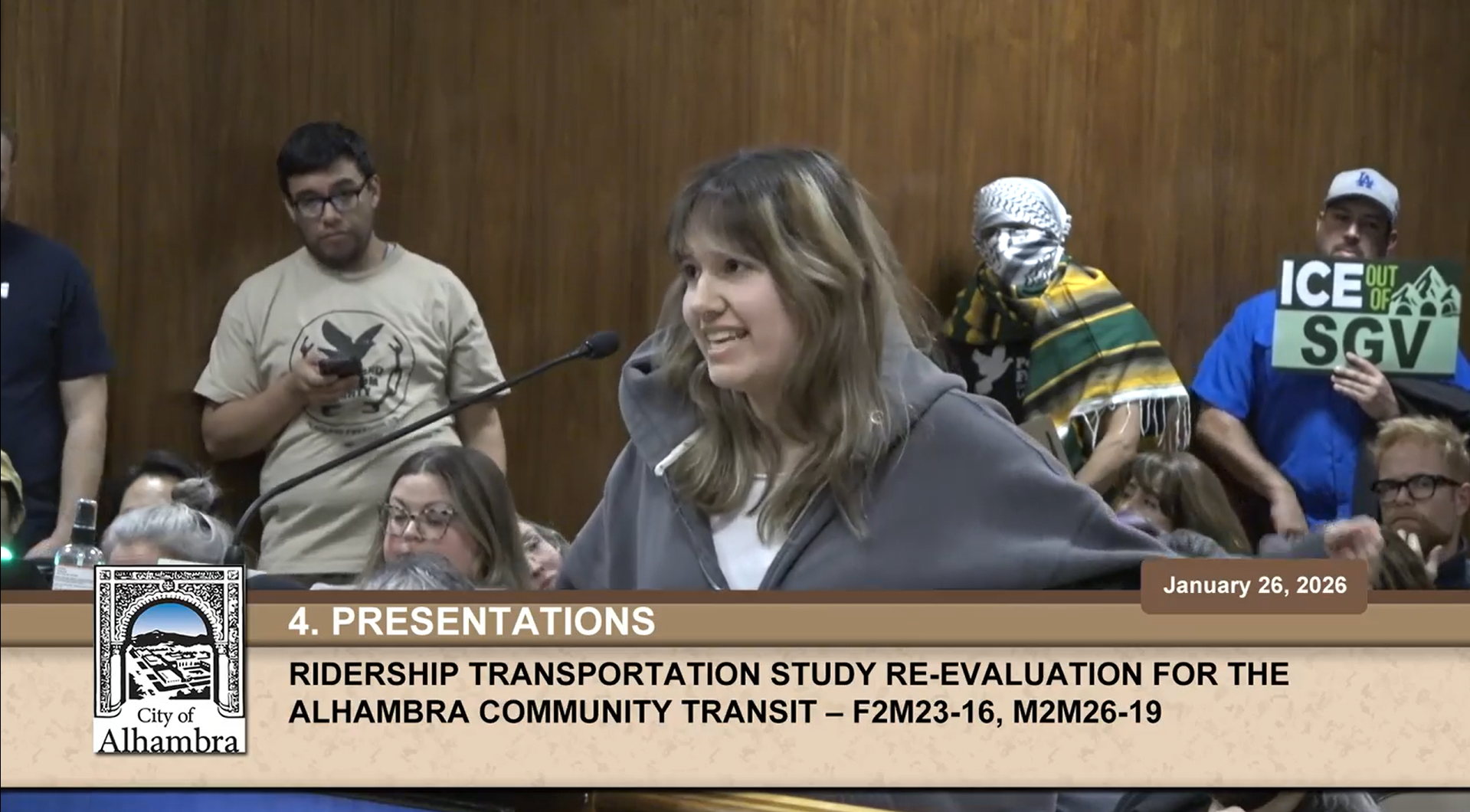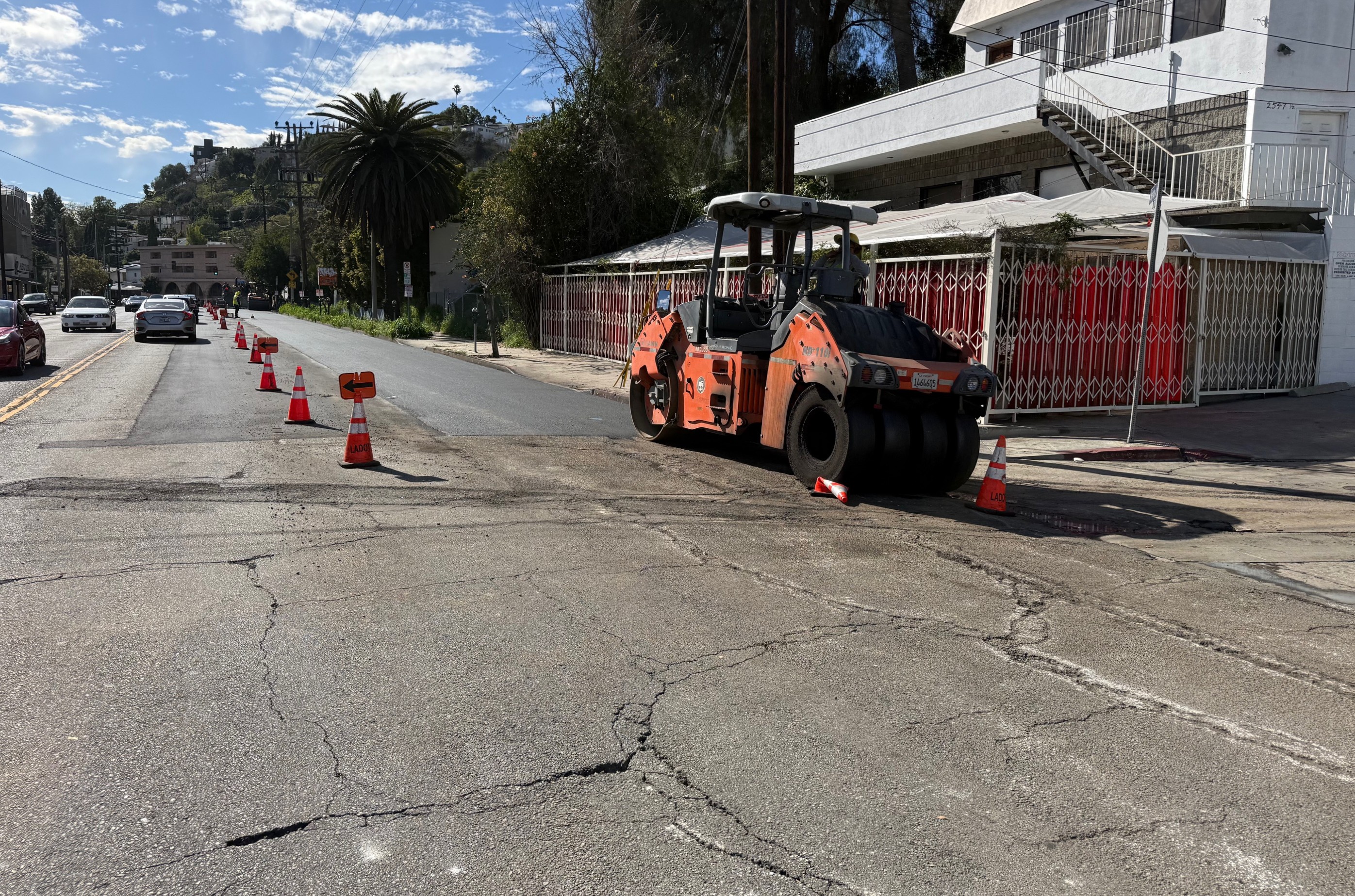We've got another election coming up this Tuesday, and while most cities in LA county residents won't be doing any voting,
there is one important election in America's Most Bike Friendly City.
Yes, Long Beach is having a mayor's race, though so far it doesn't
appear to be terribly exciting. The incumbent Mayor Bob Foster has so
far raised $250,000 for his reelection,
vastly outpacing his lone challenger, Stevie Danielle Merino.
Nonetheless, the election provides an opportunity to reflect on the
role of the mayor in improving the state of bicycling and
transportation so far, and what the outcome of the election will mean
for Long Beach residents. Even for people who live outside of LA
County's second largest city, Long Beach provides a useful (and local)
case study in how civic bureaucracy can be penetrated to achieve a
worthy cause. Without further ado, let's meet the candidates.
Bob Foster
Despite having spent his entire adult life in California, Bob Foster
retains the distinctive mannerisms of his native Brooklyn. Though never
holding elected office before first becoming mayor in 2006, his earlier
position as a staffer in the California state senate likely helped to
familiarize him with politics. Later, he served as president of
Southern California Edison before being elected mayor.

Perhaps Foster's success stems from the fact he plays well to both
the conservative eastern suburbs of Long Beach as well as the urban
core. He is quick to frame many issues in terms of business
friendliness and fiscal responsibility, while at the same time
championing environmental issues, and at times giving recognition to
organized labor. In terms of the political process, Foster is perhaps
most significant as the ceremonial leader of the city, with policy
particulars worked out in equal measure by the city council and the
city manager, Pat West.
Foster's exact positions on bicycles and transit are rarely a
visible part of his governance. The most prominent public statement he
has made recently on bicycles was at a bike-related photography exhibit.
However, he has shown himself to be at minimum sympathetic to the cause
of cycling, boasting about the city manager's bike commute in this
year's State of the City address. Also, a Press-Telegram article highlights his glowing speech about Long Beach's hybrid buses, and the mayor is scheduled to ride in the upcoming Tour of Long Beach.
The progress made toward better cycling in Long Beach is
undeniable, and most cycling advocates attribute this to the city's
creation of Bike Long Beach
and its appointment of mobility coordinator Charlie Gandy. The role of
the mayor in bringing this about is, as usual, difficult to discern.
Some have speculated that the only reason that City Hall approved Bike
Long Beach's visionary plans, such as the 2nd street sharrows, was
because they were touted as good for business. Nevertheless, Bike Long
Beach is a type of program seldom seen in American Cities, and if
nothing else, Foster has signaled his approval of it by not
disapproving. If reelected, he will hopefully continue this pattern of
progress by productive neglect.
Stevie Merino
Unseating a relatively popular incumbent mayor
is a challenge for any candidate, but the campaign of 21-year-old
Stevie Merino is also hampered by the fact that she has to balance
electioneering with taking classes at Cerritos College. In an era where
many others consider the word "socialism" to be political suicide (if
not profanity), Stevie proudly aligns herself with the Party for
Socialism and Liberation. Her platform
is, shall we say, ambitious: she hopes to cut police funding, give
everyone a job, end evictions, and tax the rich. Aside from the fact
that doing all this may not fall within the mayor's official duties,
it would be nearly impossible to implement even if it did. But despite
the apparent zeal of Merino's campaign page, she argues calmly and
methodically for her position during live appearances.

Merino's campaign didn't respond in time for us to include her
specific views on bicycles and transit, but judging from her positions,
it would be safe to assume she would generally be in favor of improving
cycling conditions. After all, improved bicycling is generally a
benefit to the working class. But there's always the chance that she
could deem biking to be a trapping of bourgeois gentrification, and
thus oppose it. As far as transit is concerned, it is entirely possible
that she would launch a BRU-style campaign to lower fares, and shun
capital improvements such as the new LB Transit Information Center in favor of increased service. The proposal for a Long Beach streetcar would likely be shelved, as that project has so far only been touted in terms of improving business.
Barring the victory of a write-in candidate, it appears that
Long Beach will continue its bike friendly policy no matter which
candidate wins. We'll do our best to provide information on the
continuing relationship between City Hall and Long Beach cycling, as
well as other important elections in the LA area.






